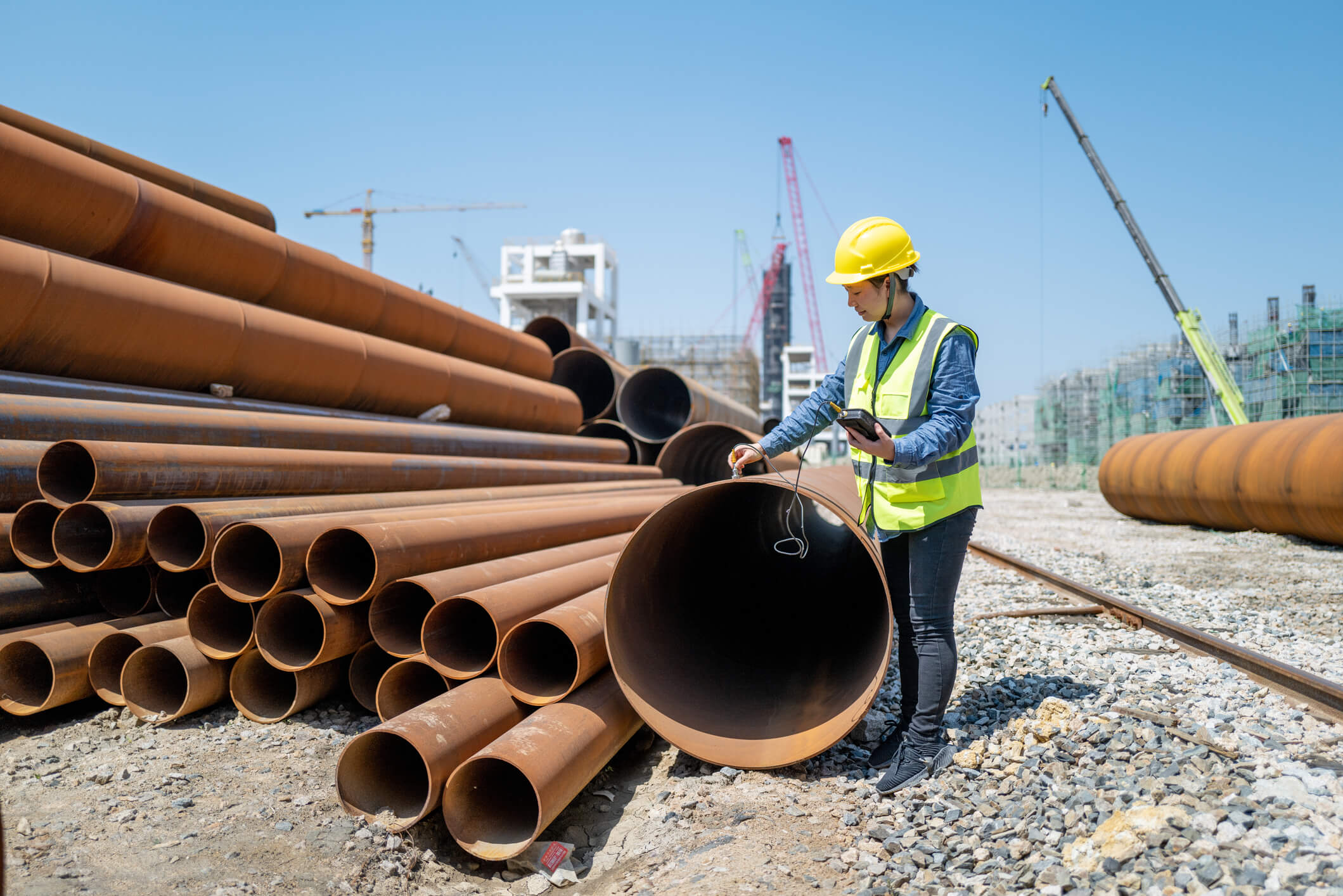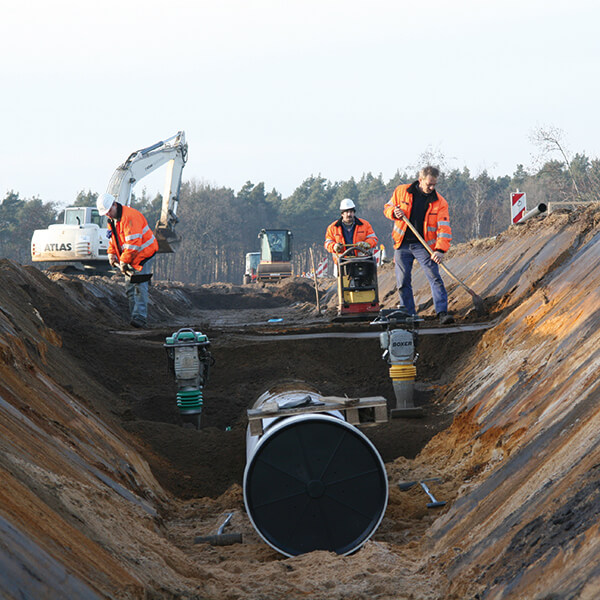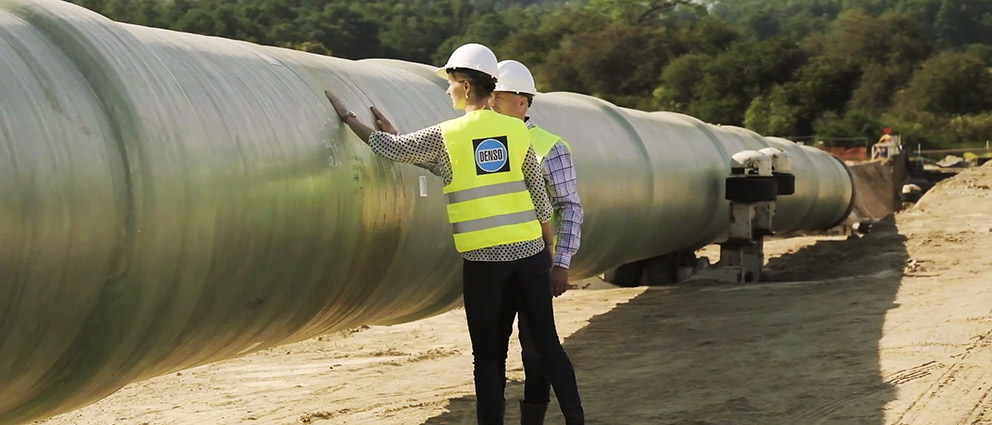Comprehending the Key Attributes of Pipeline Services and Their Influence On Performance
Pipeline solutions play an essential role in various industries, affecting operational effectiveness considerably. Trick functions, such as sophisticated surveillance modern technologies and maintenance strategies, are crucial for decreasing downtime. Additionally, governing compliance assurances safety and security and environmental security. However, the interaction between layout, facilities, and financial variables can make complex these procedures. Recognizing just how these elements impact general effectiveness raises vital concerns concerning finest practices and future advancements in the area.
The Duty of Modern Technology in Pipeline Monitoring
As improvements in innovation remain to advance, the importance of reliable pipe surveillance has actually come to be progressively noticeable. Modern pipeline systems rely upon innovative surveillance tools that boost functional efficiency and safety. Technologies such as real-time data analytics, sensing units, and drones supply operators with instant understandings right into pipeline problems, enabling them to detect leakages, corrosion, and other possible issues prior to they rise into substantial troubles.
Additionally, the combination of Net of Points (IoT) gadgets has actually transformed typical tracking approaches, enabling constant surveillance and automated coverage. This proactive method not just minimizes threats but also maximizes maintenance schedules and resource allotment. Additionally, progressed software program systems facilitate information visualization and analysis, encouraging decision-makers to respond quickly to abnormalities. Jointly, these technological innovations not just improve pipeline integrity but likewise foster environmental stewardship by alleviating the prospective effect of leakages and spills.
Upkeep Techniques for Enhanced Efficiency
Efficient upkeep strategies are crucial for optimizing pipe efficiency. Applying predictive upkeep methods, adhering to regular inspection protocols, and establishing robust emergency reaction strategies can greatly boost operational dependability. These techniques not just lessen downtime yet likewise add to the general safety and integrity of pipe systems.
Anticipating Maintenance Methods
Anticipating maintenance techniques are significantly recognized for their capacity to enhance operational efficiency in pipeline services. By leveraging data analytics and monitoring innovations, these techniques allow drivers to expect tools failings prior to they occur. This positive approach decreases unexpected downtime, minimizes upkeep expenses, and prolongs the life expectancy of crucial possessions. Sensors and IoT devices play an essential function in gathering real-time data, enabling for the analysis of tools health and efficiency trends. Artificial intelligence algorithms analyze this data to identify patterns and forecast prospective problems. Pipeline drivers can set up upkeep activities during non-peak times, optimizing source allotment and making certain constant procedure. Eventually, the fostering of anticipating maintenance cultivates an extra trusted and effective pipe facilities.

Routine Assessment Protocols
Regular inspection procedures function as a cornerstone of upkeep techniques focused on enhancing effectiveness in pipe operations - Creek Pipe local contractor. These protocols include systematic analyses of pipeline integrity, concentrating on spotting prospective problems prior to they intensify. Routine inspections generally include visual evaluations, leak discovery innovations, and pressure monitoring to guarantee peak performance. By adhering to recognized routines, operators can recognize deterioration, material wear, or blockage, therefore decreasing downtime and repair work prices. Furthermore, information gathered during examinations can notify predictive upkeep efforts, permitting an aggressive technique to pipeline monitoring. Inevitably, regular assessments not just extend the lifespan of pipeline infrastructure however also add to safer and a lot more dependable transport of sources, strengthening total functional effectiveness
Emergency Situation Action Preparation
Emergency feedback planning is essential for maintaining efficiency in pipeline procedures, making certain that operators are prepared to address unexpected occurrences swiftly and effectively. A well-structured emergency response strategy includes clear methods, designated duties, and communication techniques to alleviate threats related to pipeline failings. Routine drills and training improve team readiness and familiarize personnel with emergency treatments. Furthermore, having readily available resources, such as spill control tools and emergency contact listings, can greatly minimize action times. By incorporating real-time tracking modern technologies, drivers can rapidly determine and respond to issues, lessening ecological impact and functional downtime. Eventually, a complete emergency feedback strategy not only safeguards assets and employees but likewise enhances the total efficiency of pipeline services.
Governing Compliance and Safety And Security Standards
Regulatory conformity and safety and security criteria play an essential duty in the pipe solutions market. Pipeline services Midland Texas. Sticking to sector laws ensures that companies carry out efficient security procedures and run the risk of monitoring methods. This commitment not just secures employees and the setting yet likewise enhances overall functional efficiency
Conformity With Industry Regulations
Conformity with industry regulations is necessary for guaranteeing the safety and security and effectiveness of pipeline procedures. Regulatory structures, such as those established by the Environmental Protection Agency (EPA) and the Pipeline and Hazardous Materials Safety Administration (PHMSA), set rigorous criteria that operators should abide by. These guidelines cover numerous facets, consisting of pipeline layout, building, upkeep, and monitoring, assuring that systems operate safely and efficiently. Non-compliance can cause serious charges, functional delays, and ecological dangers. By adhering to these laws, pipeline business not just protect public safety and security and the atmosphere yet additionally boost their operational efficiency. Inevitably, governing conformity fosters depend on among stakeholders, making certain that pipeline services can operate seamlessly in a competitive landscape while meeting lawful responsibilities.

Security Method Application
Efficient security procedure implementation is a crucial component of pipeline procedures, closely linked to regulative compliance and safety standards. Following these methods not just ensures the protection of employees but additionally safeguards the atmosphere and framework. A durable security framework consists of regular training, comprehensive evaluations, and making use of ideal safety and security devices. Organizations must remain cautious in upgrading their methods to mirror modifications in laws and technological innovations. Compliance with well-known safety and security standards lessens the danger of accidents and enhances operational efficiency. In addition, a society of security cultivates worker interaction and liability, contributing to general business success. Eventually, effective safety and security protocol application is extremely important in keeping the integrity of pipeline solutions and accomplishing long-term sustainability in procedures.
Threat Management Approaches
Carrying out robust threat administration approaches is critical for assuring that pipeline operations follow governing demands and safety criteria. Organizations has to identify possible dangers and evaluate dangers associated with pipe activities. This includes carrying out comprehensive inspections, making use of sophisticated surveillance innovations, and keeping conformity with industry guidelines. Routine training for employees on security protocols boosts situational understanding and prepares groups to react properly to emergency situations. Furthermore, creating backup strategies and conducting drills can considerably reduce threats. Collaborating with governing bodies guarantees alignment with evolving security standards. By prioritizing threat management, pipeline solutions can improve operational efficiency while safeguarding both the environment and public security. Inevitably, a positive approach to take the chance of monitoring cultivates a culture of safety and security within the industry.
Pipeline Style and Framework Considerations
How can the style and facilities of pipes affect overall operational performance? The arrangement of pipelines plays an important role in establishing their effectiveness. Reliable style reduces friction losses, therefore decreasing energy click here for more info usage throughout liquid transportation. Variables such as diameter, material choice, and layout straight effect circulation rates and maintenance demands.
Furthermore, calculated placement of valves and keeping an eye on systems boosts operational control and security. Creek Pipe Midland TX. Framework considerations, including availability for upkeep and repair service, substantially affect downtime and overall productivity
Integrating sophisticated technology for real-time monitoring helps with timely discovery of leakages or inefficiencies, making sure swift responses to problems. The overall architectural integrity, affected by material sturdiness and ecological variables, also shapes long-term functional success. Consequently, thoughtful design and durable infrastructure are crucial for taking full advantage of pipeline effectiveness, inevitably adding to the reliability and success of pipeline solutions.
Ecological Impact and Sustainability Practices
While the need for pipeline services proceeds to expand, understanding the environmental impact and embracing sustainability practices has become significantly crucial. The construction and procedure of pipes can especially affect ecosystems, wildlife environments, and water resources. To alleviate these effects, companies are carrying out advanced modern technologies and methods targeted at decreasing emissions, protecting against spills, and minimizing land disruption.
Sustainability initiatives typically include making use of environmentally friendly products, boosting energy effectiveness, and utilizing eco-friendly power resources to power procedures. Furthermore, companies are significantly performing extensive environmental evaluations before job initiation, making certain compliance with guidelines and stakeholder involvement.

Cost Administration and Financial Factors in Pipeline Solutions
As the pipeline sector expands, reliable cost management and understanding financial aspects come to be essential for preserving competitiveness. Business face different financial pressures, consisting of fluctuating material prices, labor expenditures, and regulative conformity fees. To navigate these challenges, pipe company should take on strategic economic preparation and budgeting methods.
Purchasing modern technology can boost operational performance, eventually reducing expenses with time. Additionally, efficient job management warranties that resources are alloted effectively, minimizing delays and unexpected expenditures.

Market problems, such as need for energy and geopolitical aspects, also influence economic viability. Firms have to continue to be dexterous, changing their techniques in feedback to these exterior aspects.
Often Asked Inquiries
What Are the Various Kinds Of Pipeline Provider Available?
Various sorts of pipe services include transportation, storage space, upkeep, assessment, and repair. Each solution plays a critical role in making sure the smooth movement of materials, boosting safety and security, and decreasing operational disturbances throughout various industries.
Exactly How Frequently Should Pipeline Inspections Be Performed?
Pipeline assessments must be conducted on a regular basis, commonly every one to 3 years, depending on the type and problem of the pipeline. More frequent examinations may be required for next older or risky pipes to assure safety and honesty.
What Are the Key Causes of Pipeline Failings?
The main root causes of pipeline failings consist of corrosion, faulty construction, product issues, external damages, leakages, and functional errors. Each aspect contributes considerably to possible risks, highlighting the value of regular upkeep and tracking for security.
Just How Can Firms Enhance Pipeline Solution Reliability?
Firms can enhance pipeline service reliability by applying routine upkeep schedules, making use of advanced tracking modern technologies, conducting extensive assessments, purchasing employee training, and taking on aggressive danger management approaches to anticipate and minimize possible failures.
What Function Do Operators Play in Pipeline Services?
Operators play a necessary function in pipeline hop over to these guys solutions by making sure safe transportation, maintaining devices, keeping an eye on system honesty, coordinating maintenance, and replying to emergency situations. Their knowledge directly affects operational efficiency and lessens interruptions in service delivery.